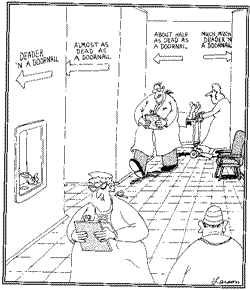When does life begin?
Legally, life begins at birth. A woman who was 7 months pregnant was hit by a car in Bristol. The baby was delivered in hospital, but did not survive. The 27 year old driver will be charged with causing death by dangerous driving. If the unborn baby had died before being delivered, no such charge could have been brought.
Is this legal definition right? Abortion law protects a foetus after 24 weeks (except in extreme cases), when the foetus becomes viable. It suggests that if the foetus could survive independently, it should not be so readily terminated. Pro-life campaigners argue that this is inconsistent - if a foetus is recognised as having an increased status, why not a right to life?
Many people hold that we cannot know when life begins, and therefore should treat all human life as sacred from the moment of conception.
 When does life end?
When does life end?
There is no legal definition of death in the UK, although doctors will certify someone as dead if:
-
There are no spontaneous movements.
-
There is no respiratory effort.
-
There are no heart sounds or palpable pulses.
-
There is an absence of reflexes including corneal, gag and vestibulo- ocular reflexes (spinal reflexes may persist for a time).
-
The pupils are fixed and dilated.
There are many difficult cases, such as when a person is on a life support machine, in a coma or in a persistent vegetative state. Do they have the right to life?
Is it right to end a life?
There are many circumstances when it is legally acceptable to kill someone - in a war, in self defence (in some cases), in defending someone else (e.g. as a police officer). It is generally seen as wrong to deliberately kill an innocent human being. However, there are many difficult cases where people disagree about this. What if someone is going to die anyway and you could use their organs to save someone else? What if someone wants to die but is too ill to kill themselves? What if by killing one person, you can save someone else?
How hard must we try to save a life?
If we stop treatment, do not resuscitate, and let someone die, is this ethically different from killing them? At what point do we stop trying to keep someone alive? How do we determine which lives are worth saving, and which are not?

